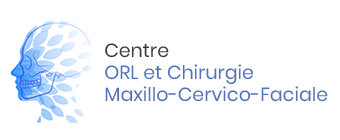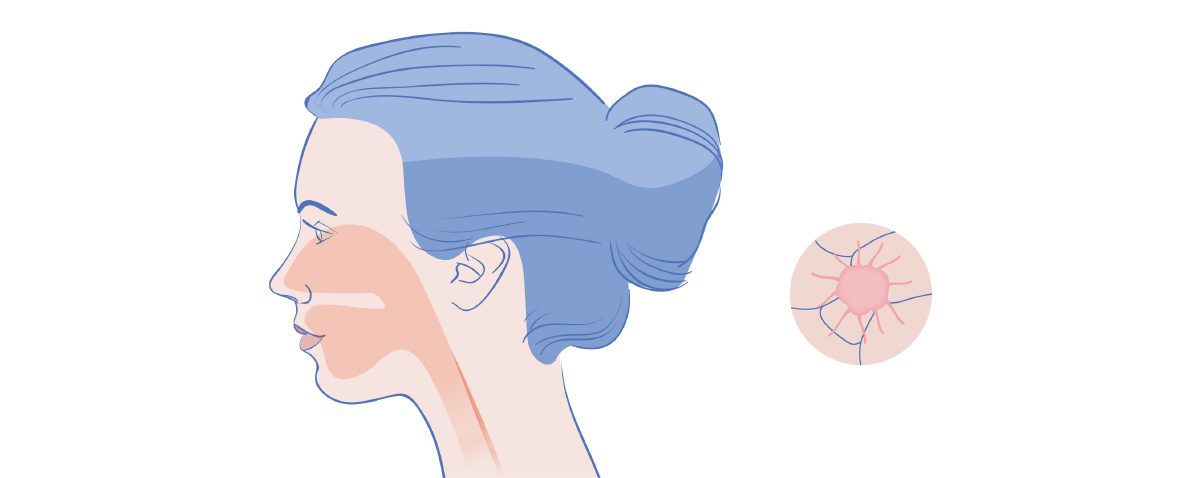1. Otology .
Otology is an ENT subspecialty that deals with ear affections and problems of hearing and dizziness. Usual symptoms include ear pain, ear discharge, ear fullness, hearing loss, tinnitus, and dizziness. Simple ear, hearing, and dizziness problems are handled but the Center does not specialize in otology.
2. Rhinology .
Rhinology is about the function and pathologies of the nose and paranasal sinuses. Rhinologic problems are extremely frequent and include trouble breathing through the nose (nasal obstruction), nasal discharge or bleeding, facial pain, and smell disorders. Numerous diseases could be responsible for these symptoms and the Center specializes in the investigation and treatment of the vast majority of nasal pathologies.
3. Oral cavity .
The oral cavity or mouth is essential for food intake, mastication, and swallowing. In addition, the mouth plays a role in sound modulation for pronunciation and speech, in breathing, as well as food tasting. Oral problems or diseases present as mucosal lesions, pain or burning sensation while eating, malocclusion, chewing and swallowing difficulties, and taste or speech abnormalities. Numerous diseases could be responsible for these symptoms and the specialists collaborating in the Center are ideally trained for the investigation and comprehensive treatment of oral pathologies.
4. Pharynx .
The pharynx is divided in three levels, each with specific disorders and presentation. Diseases of the nasopharynx manifest themselves with ear or nasal problems, as wells as breathing difficulties and noises. The oropharynx is the crossroad of the breathing and swallowing pathways, therefore oropharyngeal problems will present with swallowing, breathing, and speaking difficulties. When the hypopharynx is involved, swallowing could be painful or impaired and a foreign body sensation could be present. Investigation of the variety of pharyngeal pathologies is performed thanks to the Center equipment (endoscopy, pH measurement, polygraphy) allowing for specific treatments.
5. Snoring & Sleep apnea .
Snoring and a majority of the apneas are caused by ENT anomalies and especially of the pharynx. The investigation in the Centre or in general anesthesia can be used to detect abnormalities which can be treated by surgery, orthesis, electrical implant or requiring further investigation and treatment (most frequently by positive pressure devices).
6. Swallowing .
Swallowing is the ability to bring food to the stomach without false passage in the trachea and lungs. Symptoms of swallowing disorders include coughing during meals, repeated pneumonias, and food that does not go down. The Centre’s specialists have a long-standing interest in the investigation and treatment of swallowing disorders.
7. Larynx & Voice .
The voice is generated in the larynx and modulated by the muscles of the pharynx and mouth. Larynx pathologies present mainly with voice changes, but also with coughing, swallowing difficulties, as well as noisy and difficult breathing. The visualization of the fine movements of the larynx leads to a precise diagnosis allowing the choice of the optimal treatment.
8. Neck .
The pathologies of the neck usually present with a visible mass and sometimes by pain and or redness. The diseases that can cause these symptoms are multiple and the Center investigates and treats the vast majority of these.
9. Salivary glands .
The salivary glands produce the saliva necessary for optimal function of the teeth, the mouth, including swallowing. Salivary pathologies are most often heralded by an isolated and painless mass. More rarely, diffuse gland swelling that becomes painful during meals, oral dryness or paralysis of the face indicate a problem of the salivary glands. The Centre’s specialists have a worldwide reputation in the surgery of salivary gland pathologies.
10. Head & Neck cancer .
Most ENT organs can develop cancers. The diagnosis and treatment of head and neck cancers is complex and multidisciplinary for a long time. Beyond Head & Neck and Maxillofacial surgeons, the collaborating team includes radiation and medical oncologists, but also radiologists, nutritionists, speech therapists etc… Specialists with a large experience are gathered at the Hôpital de la Tour to allow optimal and individual management of each patient.


